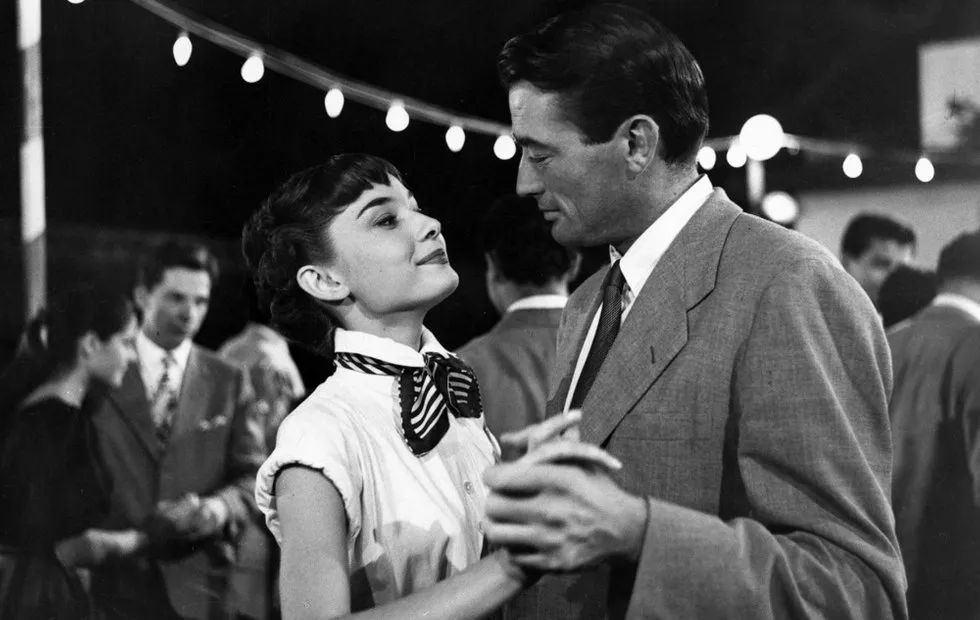Intuitive Eating or Calorie Counting: What Actually Works
Remember: your goal is to learn how to eat in a way that makes you healthy, energetic, and satisfied with your body
Some bloggers urge you to count every calorie and weigh your food down to the gram. Others suggest forgetting about numbers and 'listening to your body'. Who's right? After three years of observation, we've found out which approach actually helps with weight loss without giving up, and which only works in theory.
 Photo from freepik.comMain takeaways from the article:
Photo from freepik.comMain takeaways from the article:
- Calorie counting is more effective for rapid weight loss but harder to sustain long-term;
- Intuitive eating isn't suitable for everyone — it requires certain skills and psychological readiness;
- For most people, a hybrid approach is optimal: calorie control plus attention to hunger signals;
- The success of any method depends on your willingness to change eating habits, not the method itself;
- Women over 35 may find it harder to rely solely on intuition due to hormonal changes.
The principle is simple: burn more than you consume — lose weight. Eat more than your daily norm — gain weight. No mysticism, just human body physics.
The pros are obvious: results are predictable and fast. Create a 500-calorie deficit per day — lose one kilogram guaranteed within a week. You can eat your favorite foods, as long as you stay within the limit.
The cons show up over time. Constantly weighing food turns into obsession. Going to a restaurant becomes stressful — how do you count calories in risotto? Social life suffers: 'Sorry, I can't go to the birthday party — there's cake and my daily calorie allowance is already used up.'
Real Experience: Three Months of Strict Calorie CountingMaria, my friend, 34 years old, decided to lose weight by summer for 8 kilograms. She installed an app, bought kitchen scales, and calculated her daily intake — 1400 calories.
The first month went perfectly. Weight loss was on track, and she felt in control of her eating habits. But by the middle of the second month, problems started. Constant thoughts about food, irritability, and weekend binges.
Three months later: minus 6 kilograms, but her relationship with food was damaged. 'I stopped enjoying eating. Every meal became a math problem,' Maria says.
Intuitive Eating: Trusting NatureThe idea sounds appealing: your body knows what it needs. Eat when hungry, stop when full. No restrictions, no stress.
Key principles of intuitive eating:
- Distinguish between physical and emotional hunger;
- Eat slowly and mindfully;
- Stop eating when satisfied;
- Avoid labeling foods as 'good' or 'bad';
- Enjoy your food.
This sounds logical, but in practice it's more complex.
Why Intuition Can MisleadModern food industry has disrupted our natural satiety mechanisms. Flavor enhancers, sugar, and trans fats make us eat more than our body needs.
Stress, lack of sleep, and hormonal fluctuations also affect hunger. When you're nervous, you crave sweets — it's not a physical need but an attempt by the brain to quickly get pleasure.
Many people have disrupted satiety mechanisms due to years of improper eating. The stomach is stretched, and signals of fullness arrive too late.
Experiment with Intuitive EatingAnna, another friend, 28 years old, tried intuitive eating after failed diet attempts. For the first two weeks, she ate whatever she wanted, listening to her feelings.
Unexpectedly, 'wanting' mostly meant sweets and fats. In two weeks, she gained 2 kilograms. 'My body wanted cakes and pizza 24/7. Clearly, my intuition is broken,' Anna laughs.
But she didn't give up. She spent a month learning to distinguish hunger from appetite, eating slowly and noticing the moment of fullness. After six months, her weight stabilized and her relationship with food improved.
Who Benefits from Each MethodCalorie counting works best for:
- People with strong motivation to lose weight by a specific date;
- Those who love control and planning;
- People with disrupted satiety perception;
- Athletes who need precise nutrition.
Intuitive eating suits:
- People without serious weight issues;
- Those willing to invest time in learning new skills;
- People with eating disorder history;
- Those who prioritize psychological comfort over speed of results.
In practice, many people combine methods. Initially, calorie counting helps understand portion sizes and caloric content of foods. Then a gradual shift to intuitive eating while retaining basic knowledge about food nutrition.
Elena, 31 years old, uses 'soft control': she doesn't count calories precisely but roughly estimates the energy value of her meals. She relies on hunger and fullness cues, but knows that a salad with chicken is better than pasta in cream sauce.
Underwater Rocks of Intuitive Eating- The myth of 'listening to the body' — not all bodily signals are accurate. Cravings for sweets may indicate stress, not glucose needs.
- Social pressure — it's hard to eat intuitively when everyone around is on diets and discussing calories.
- Hormonal changes — women's appetites fluctuate during their cycle, complicating 'listening to the body'.
Strict calorie control can lead to obsessive thoughts about food, social isolation, and guilt over 'wrong' foods.
Especially cautious should be people with perfectionist tendencies and anxiety-prone personalities. For them, calorie counting can become a new form of control over life.
Practical Tips for BeginnersIf you choose calorie counting:
- Start with gentle restrictions, don't cut calories drastically;
- Plan 'cheat days' — days without counting;
- Learn to estimate portions visually;
- Gradually transition to more free eating.
If you try intuitive eating:
- Start with one meal a day 'by intuition';
- Maintain a hunger diary — record feelings before and after meals;
- Learn to eat slowly, without phone or TV;
- Don't expect quick results — skills take months to develop.
There is no universal method that works for everyone. What matters is finding an approach you can stick to long-term without compromising psychological health.
Calorie counting is good for fast results and learning basic nutrition. Intuitive eating works better for long-term weight maintenance and healthy relationships with food.
The key is to remember that the goal isn't to count calories for life or rely entirely on intuition. The goal is to learn how to eat in a way that makes you healthy, energetic, and satisfied with your body.
And maybe in a few years you'll realize that the best method is one you don't have to think about constantly.
Featured image from freepik.com
Need a renovation specialist?
Find verified professionals for any repair or construction job. Post your request and get offers from local experts.
You may also like

What Will Be Trendy in Interior Design in 2026: 7 Trends

Last Chance to Save the Harvest: 12 Tasks on the Dacha You Can't Postpone Until October

Stylish 54 m² Euroduplex Interior with Dream Kitchen and Smart Storage Solutions

How a Designer Completely Redesigned the Layout and Furnished Her 83 m² Apartment
More articles:
 What Will Be Trendy in Interior Design in 2026: 7 Trends
What Will Be Trendy in Interior Design in 2026: 7 Trends Last Chance to Save the Harvest: 12 Tasks on the Dacha You Can't Postpone Until October
Last Chance to Save the Harvest: 12 Tasks on the Dacha You Can't Postpone Until October Stylish 54 m² Euroduplex Interior with Dream Kitchen and Smart Storage Solutions
Stylish 54 m² Euroduplex Interior with Dream Kitchen and Smart Storage Solutions How a Designer Completely Redesigned the Layout and Furnished Her 83 m² Apartment
How a Designer Completely Redesigned the Layout and Furnished Her 83 m² Apartment How to Tell if a Plumber Is Scamming You for Money
How to Tell if a Plumber Is Scamming You for Money 7 Secrets of the Film 'Roman Holiday': How the Classic with Audrey Hepburn Was Shot
7 Secrets of the Film 'Roman Holiday': How the Classic with Audrey Hepburn Was Shot Soviet Furniture on 'Avito': How to Tell Treasure from Junk
Soviet Furniture on 'Avito': How to Tell Treasure from Junk Color Map of the House: How to Use 2025 Trends in Each Room
Color Map of the House: How to Use 2025 Trends in Each Room